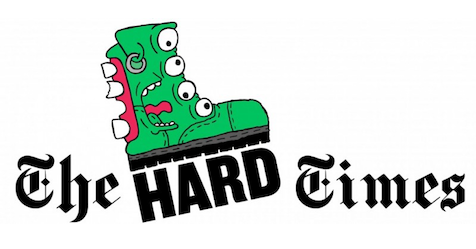Folk music! Are there any more beautiful two words in the English language? In the early 1960s, a resurgent interest in traditional music caused a socio-political awakening in the youth of America. Buoyed by figures like Pete Seeger, Bob Dylan and Woody Guthrie, a new generation of Americans found their voice in the sounds of the past, and embraced its passion for social change. However, lesser-known figures also asserted their views through the medium, and a sub-genre known as “estate tax folk” was born!
The Haymen
Talkin’ Financial Levy:
This Greenwich Village quartet was rightly lauded for their instrumental virtuosity, encyclopedic repertoire of classic blues and folks songs, and thick woolen sweaters. On 1962’s “Talkin’ Financial Levy,” they delved for the first time into original compositions, including numbers like “Leave That Tax Code Be” and “Hush Little Baby (Inheritance Blues).” It did not chart, and the sense of failure caused The Haymen to give up music and their sweaters.
Wanderin’ Bob Robbs
Bob Sings to the Internal Revenue Service
Called “the other Woody Guthrie but less so,” Wanderin’ Bob Robbs released the little-known, often-despised “Bob Sings to the Internal Revenue Service” as part of the ambitious series of politically outspoken Bob Sings… albums. No fewer than seven songs on the album directly address then-Commissioner of the Internal Revenue Mortimer Caplin, eventually devolving into lurid threats. Robbs served a two year prison stint for obscenity, which his friend in the New York scene, Lenny Bruce, called “appropriate.”
Judy DeJudy
For the Children
The “Queen of Judys,” singer Judy DeJudy only released two albums in her sadly-brief recording career. After her own parents died in 1959 in a freak regatta accident, “For the Children” is generally considered to channel her grief and rage over the thought of a percentage of her $7 million inheritance being taxed. With minimal banjo accompaniment, DeJudy vividly describes how any changes to this aspect of the tax code would essentially be destroying the future of all children, ever. She shortly thereafter retired from the music industry to fund political action committees.
The Three Singers
Try to Remember, Congressman
This one was just three unidentified men chanting “Congressman, Congressman/ Reform is unnecessary” over washboards for 37 minutes.
Phil, Phyllis and Henry
One Sixth is Too Much
Press releases for Phil, Phyllis and Henry’s 1965 album “One Sixth is Too Much” described it as “a towering landmark of political expression, set to music.” Unfortunately, critics, the public and eventually the trio’s own ousted manager disagreed and the group sank into obscurity. They had a brief resurgence of popularity when their song “Loophole, Loophole” was featured in a conservative attack ad, but infighting and cocaine broke them up for good.
Draft Dodgin’ Dave
Death is Not the End of Injustice
One of the more enigmatic figures of ‘60s folk, Draft Dodgin’s Dave disappeared from public life in 1966 after witnessing a motor accident. If he is remembered at all, it is for the centerpiece of “Death is Not the End of Injustice,” the meandering, acoustic ballad “My Estate Shall Be Tax-Free.” But he isn’t.




